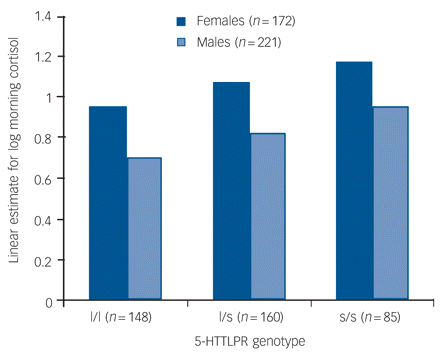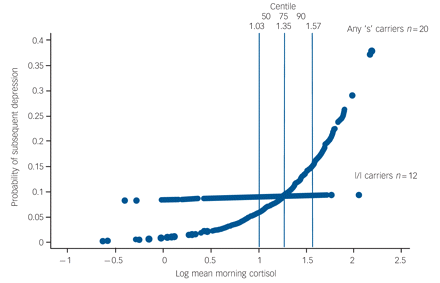The question is what will be the next reserve currency. I do not think the euro or the pound are candidates — the euro because of the comprimises the Germans have to make and the Pound because Brown has mismanaged it.
And the mandarins have only had their act together around the rembi in the last few years.
But I’d be short on the US dollar.
]]>In ancient times, the solidus circulated far and wide. But it was a tangible thing, a gold coin struck by the Byzantine Empire. Between Waterloo and the Great Depression, the pound sterling ruled the roost. But it was convertible into gold—slip your bank notes through a teller's window and the Bank of England would return the appropriate number of gold sovereigns. The dollar is faith-based. There's nothing behind it but Congress.
But now the world is losing faith, as well it might. It's not that the dollar is overvalued—economists at Deutsche Bank estimate it's 20% too cheap against the euro. The problem lies with its management. The greenback is a glorious old brand that's looking more and more like General Motors.
You get the strong impression that Mr. Bernanke fails to appreciate the tenuousness of the situation—fails to understand that the pure paper dollar is a contrivance only 38 years old, brand new, really, and that the experiment may yet come to naught. Indeed, history and mathematics agree that it will certainly come to naught. Paper currencies are wasting assets. In time, they lose all their value. Persistent inflation at even seemingly trifling amounts adds up over the course of half a century. Before you know it, that bill in your wallet won't buy a pack of gum.
via James Grant Mourns the Loss of the Gold Standard – WSJ.com.
 IThe black line is a corrected version of the standard tree data set. The set is now open. The tree cores were selected. Data points were left out. The data was reconstructed and further data added. That is the black line. There is no evidence of a temperature change. GCS may be false. and peer review did not pick it.
]]>
IThe black line is a corrected version of the standard tree data set. The set is now open. The tree cores were selected. Data points were left out. The data was reconstructed and further data added. That is the black line. There is no evidence of a temperature change. GCS may be false. and peer review did not pick it.
]]>Background
The short (s) allele of the serotonin transporter gene promoter (5-HTTLPR) may be associated with exposure to social adversities and the subsequent onset of depressive illness in adulthood.
Aims
To test in adolescents at high risk for depression whether the short ‘s’ allele is associated with levels of morning cortisol and the subsequent onset of a depressive episode.
Method
High-risk adolescents (n = 403) were genotyped for 5-HTTLPR. Salivary samples were obtained on four consecutive school days within 1 h of waking from 393 (97.5%) individuals and 367 (91%) underwent a mental state reassessment at 12 months.
Results
Multilevel analysis revealed higher levels of salivary cortisol in short allele carriers (s/s>s/l>l/l). A subsequent episode of depression was increased in those with higher cortisol and the ‘s’ allele, and independently by depressive symptoms at entry, in both genders.
Conclusions
The short allele of 5-HTTLPR may moderate the association between morning cortisol and the subsequent onset of a depressive episode.
]]>Ms Naidu, an independent midwife, was not alleged to have contributed to the baby’s death, but she was said to have omitted fundamental checks and failed to recognise something was wrong with the pregnancy.
The tribunal ordered her to do Midwifery Council-directed training and be supervised for 18 months. Her caseload was restricted to 50 births for a year and for the following six months to a level to be set by the council.
Council registrar Susan Yorke said yesterday that through Ms Naidu’s supervision and competency programme, “it became clear she posed a risk of harm to the public”.
(go read the whole article)
“The public is protected sufficiently by the fact that she has been suspended. The public doesn’t need to know the reasons for it and we don’t disclose that; certainly we wouldn’t disclose that unless the midwife agreed.”
Ms Yorke said Ms Naidu must satisfy the council she had the competency required of a new-graduate midwife before the suspension could be lifted. The suspension would continue until she met the council’s requirements.
Mrs Hussein’s husband and Anket’s father, Davinder Singh, said from Britain, where the family now live, that Ms Naidu’s suspension showed the health-complaints system was working well. “It’s a great outcome for the public of New Zealand.
“This has reinforced my belief in the policies and processes.”
via Midwife barred over risk to clients – Health – NZ Herald News.
Childbirth is risky. Things can and do go wrong. In this, as in other branches of medicine, the use of peer review, audit, and in particular discussion in detail of mortality and morbidity is very important.
We are all human, and we can make mistakes. So I think getting Ms Naidu supervised and monitored clesely was a good first move, but then (and this is where I think the council should be congratulated when it was clear she was below standard they stopped her from working. If you do this as a supervisor you can end up in all sorts of grief, but Ms Naidu’s supervisors did their duty.
Good on them, and good on the council for acting on their report. One hopes that Ms Naidu will get up to standard, but it is clear that she will not be allowed to work until she gets there.
]]>I’m also aware that business thrive on reputations. In the food trade, it only takes ONE bad review to undo a mountain of work.
This week TV3 released a statement on behalf of production company Top Shelf Productions admitting food samples from the cafes were incorrectly coded and they were unable to confirm which one had produced the contaminated food.
The statement said the employee in charge of labelling the samples had been sacked.
Cafe Cezanne owners Rod Williams and Jackie Wilkinson said the “unbelievable” mistake had ruined their once-thriving business and they had taken legal advice on their next step.
AdvertisementAdvertisement
“If it carries on this way we are going to go bankrupt,” Williams said.
“Our meals are quite reasonably priced and we go for volume in our cafe, but things have been so much quieter.
“We are pretty disappointed and our staff are very upset by everything.”
The cafe received an A grade rating during a food and safety inspection by the Auckland City Council last month.
Both owners said the mistake was unforgivable and wanted to know more about how it had happened.
Wilkinson said they contacted Target before the show aired to say there was a mistake with the food sample.
“We knew there were a few errors in their facts but they went ahead anyway and we have noticed a serious downturn in clientele since then,” she said. “Then they come out with an apology but it’s too late. It’s shocking
via Cafe ruined by Target’s false slur – National – NZ Herald News.
I don’t live in Auckland. I used to: I’ve also worked in Ponsonby, where the main road is basically a series of cafes. People can go elsewhere. Reputation is everything: of course this applies to TV3 as well.
I suggest people should boycott Target until they make good to this firm.
]]>These ancient traditions need to be rooted out.
]]>She was a lovely girl, very innocent and always used to read the Koran. God knows what madness prompted her to run away with that boy. We’re all very sad at what happened.”
It was obvious I was going to get little more out of the family so we left and headed to the office of the local policeman for a little more clarity.
“We got to hear about the incident and decided to act,” said police superintendent Sharad Sachan.
“The young couple were legally married and therefore entitled to live together. Their parents and the villagers had no right to put pressure on them and force them to commit suicide. They are guilty of a crime and we will do all we can to build a case against them.”
As we headed back to Delhi, it was clear that with a wall of secrecy descending around the whole incident, the police were going to have their work cut out.
They may have the law on their side but the villagers are defending ancient codes and traditions that remain untouched by modernity. And they will fight to keep it that way
via BBC NEWS | South Asia | India’s Romeo and Juliet tragedy.
At present I’m trying to work out how to do a meta analysis of the correlations or odds ratios in a nested confirmatory factor analysis. Probably not needed, as there are descriptive differences and I simply cannot compare apples with gorillas. Problem is there are two papers with almost identical results. But not quite.
WIll need to look at more than OVID for this — there were only 17 hits with the first search so I’ll change words and look again (I was hitting multiple databases at the same time though, so only five papers that looked useful). May not be much else
In the meantime, CRAN let me find this:
Authors: Ken Kelley
(2445)Confidence Intervals for Standardized Effect Sizes: Theory, Application, and Implementation
Reference: Vol. 20, Issue 8, Feb 2007
Submitted 2006-10-01, Accepted 2007-07-30
Type: Article
Abstract:The behavioral, educational, and social sciences are undergoing a paradigmatic shift in methodology, from disciplines that focus on the dichotomous outcome of null hypothesis significance tests to disciplines that report and interpret effect sizes and their corresponding confidence intervals. Due to the arbitrariness of many measurement instruments used in the behavioral, educational, and social sciences, some of the most widely reported effect sizes are standardized. Although forming confidence intervals for standardized effect sizes can be very beneficial, such confidence interval procedures are generally difficult to implement because they depend on noncentral t, F, and x2 distributions. At present, no main-stream statistical package provides exact confidence intervals for standardized effects without the use of specialized programming scripts. Methods for the Behavioral, Educational, and Social Sciences (MBESS) is an R package that has routines for calculating confidence intervals for noncentral t, F, and x2 distributions, which are then used in the calculation of exact confidence intervals for standardized effect sizes by using the confidence interval transformation and inversion principles. The present article discusses the way in which confidence intervals are formed for standardized effect sizes and illustrates how such confidence intervals can be easily formed using MBESS in R.
I am such a stats geek that this is my bedtime reading. Pathetic.
]]>And moved.
As I said yesterday, the US is a natural experiment that has proved, in the last decade, that Peronist economics does not work.
]]>Politicians like to talk about incentives — for businesses to relocate, for example, or to get folks to buy local. After reviewing the new budget, I have identified the most compelling incentive of all: a major tax break immedi ately available to all New Yorkers. To be eligible, you need do only one thing: move out of New York state.
Last week I spent 90 minutes doing a couple of simple things — registering to vote, changing my driver’s license, filling out a domicile certificate and signing a homestead certificate — in Florida. Combined with spending 184 days a year outside New York, these simple procedures will save me over $5 million in New York taxes annually.
By moving to Florida, I can spend that $5 million on worthy causes, like better hospitals, improving education or the Clinton Global Initiative. Or maybe I’ll continue to invest it in fighting the status quo in Albany. One thing’s certain: That money won’t continue to fund Albany’s bloated bureaucracy, corrupt politicians and regular special-interest handouts.
However, the budget is bloated. Taxes are soooo high that firms and people are leaving. This demonstrates, almost perfectly, that tax and spend policies are economically disastrous.
It is a perfect experiment: 300 people who can move through 50 states with no restrictions: firms that can also move in a similar manner. The consequence is that Calif. is going to tank. Or be rescued, which will mean that the federal government will have more toxic debt that it can swallow.
I agree with Megan McArdle…
So what about California? A reader asks. Ummm, that’s a tough one. No, wait, it’s not: California is completely, totally, irreparably hosed. And not a little garden hose. More like this. Their outflow is bigger than their inflow. You can blame Republicans who won’t pass a budget, or Democrats who spend every single cent of tax money that comes in during the booms, borrow some more, and then act all surprised when revenues, in a totally unprecedented, inexplicable, and unforeseaable chain of events, fall during a recession. You can blame the initiative process, and the uneducated voters who try to vote themselves rich by picking their own pockets. Whoever is to blame, the state was bound to go broke one day, and hey, today’s that day!
There is a surprisingly sizeable blogger contingent arguing that we have to bail them out because however regrettable the events that lead here, we now have no choice. But actually, we do have a choice: we could let them go bankrupt. And we probably should.
I am not under the illusion that this will be fun. For starters, the rest of you sitting smugly out there in your snug homes, preparing to enjoy the spectacle, should prepare to enjoy the higher taxes you’re going to pay as a result. Your states and municipalities will pay higher interest on their bonds if California is allowed to default. Also, the default is going to result in a great deal of personal misery, more than a little of which is going to end up on the books of Federal unemployment insurance and other such programs.
Then there are the actual people involved. Whatever you think of, say, children who decided to be born poor, right now they are dependent on government programs, and will be put in danger if those programs are interrupted.
On the other hand, I don’t really see another way out of it. If Uncle Sugar bails out California, California will not fix its problems
But there is one fly in the ointment. The Obamaborg owes Pelosi. Pelosi was infected with Peronism a long, long time ago. This could be the beginning of the USA slide towards being, like Argentina, a banana republic.
]]>Holiday handed himself in to the care of a secure unit, but the following month a social worker let him back out into the community. This was a “missed opportunity” to have him sectioned, according to the report, which was written by the region’s strategic health authority, NHS Yorkshire and the Humber.
And the decision should not be made by one person. It should be made by a team and there should be a senior psychiatrist signing off on it.
Holiday missed his fortnightly dose of anti-psychotic drugs the day before the killing because he had not been home when a nurse called. He went on to steal a 10-inch carving knife from a store and was captured loitering in the street, as if waiting for someone to pass by.
One of the main reasons for community treatment orders is so that this does not happen. In high risk people a protocol (legal in NZ, but the UK is full of idiots making the life of both the mad and mad doctors miserable) is to admit to hospital briefly: we can and do use the police to bring people back for their injections.
If you miss your meds you can relapse. About 90% of people with schizophrenia who stop their meds will relapse. And being psychotic is very bad for your ability to cope in most people. In a few, very few, it leads to them being quite dangerous, which is why compulsory treatment exists.
He turned off into Wellsted Street, where his path crossed with Miss Stevenson, who had just left her home.
Holiday walked past her, turned and stabbed her once in the back, piercing her heart and leaving her bleeding to death. He then walked home calmly. Police tracked him down from CCTV images and Holiday admitted manslaughter on the grounds of diminished responsibility. He was ordered to be detained indefinitely at Rampton Hospital.
The report found that Holiday had been treated in at least five mental health units and was sectioned under the Mental Health Act on at least two occasions, but had a habit of escaping.
Known to be high risk. It would be interesting to see if there had been a review panel before all this.
Mr Snowdon apologised to the family of both Miss Stevenson and Holiday for the distress caused to them. He said the trust took the report “very seriously” and lessons had “already been learned”.
The NHS trust and clinicians should have acknowledged distress and that this was a tragedy from the beginning. That is not an admission before a court of law: that is being human and good care.
]]>via NHS trust admit catalogue of errors let schizophrenic kill pregnant woman – Telegraph.